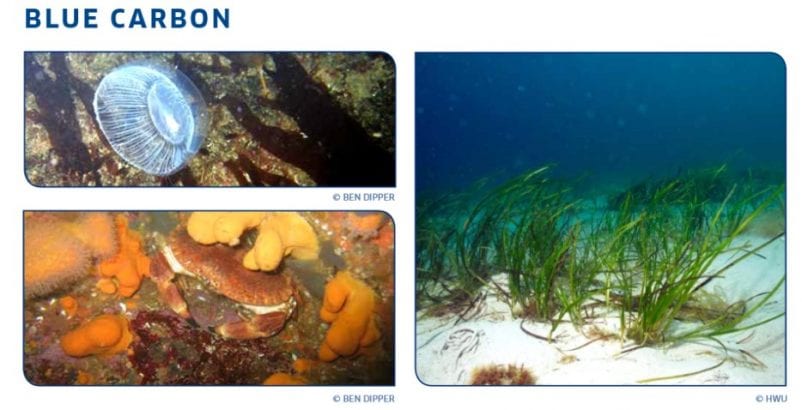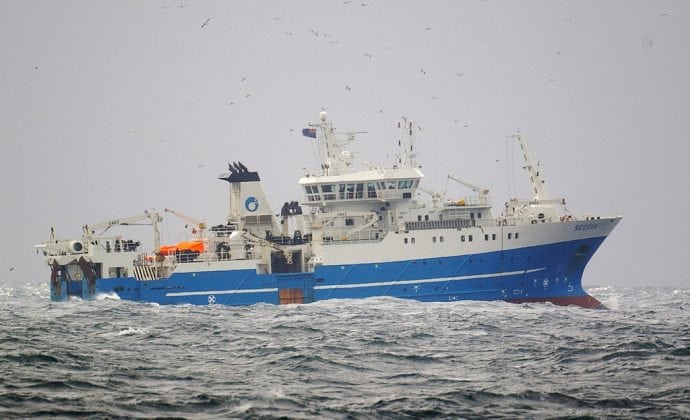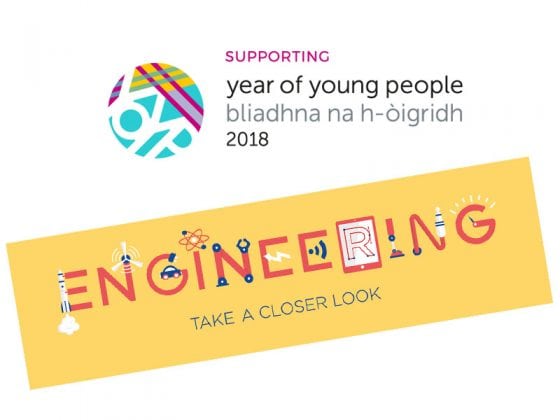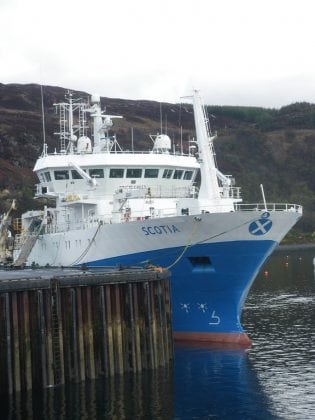Marine
-
Clean Seas Environment Monitoring Programme
30th November 2018 by Marine Directorate Communications
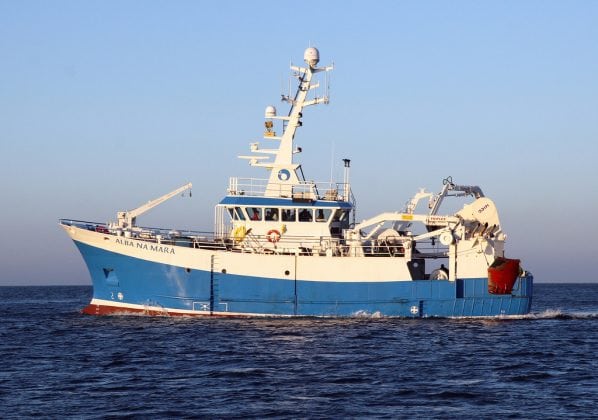
Survey: 1918A Alba na Mara Programme Duration: 29 November – 3 December 2018 Sampling Gear: BT 158 with 50 mm cod-end; 2 m beam trawl with 50 mm cod-end; Day grab and table; Catamaran and neuston net Objectives: To undertake flatfish sampling in St Andrews Bay, Outer Firth of Forth and the Forth estuary (Tancred) in support of the...
-
Meet Luisa Barros – Fishing Gear Scientist
28th November 2018 by Marine Directorate Communications
Next up in our series of posters from the Science in Government event is from Luisa Barros. Luisa is a Fishing Gear Scientist that undertakes research into fish behaviour. Find out more about a typical day for Luisa in her poster below. Further Information: Science in Government 2018 posters Meet Pablo Chevallard our Renewables and...
-
Researching Blue Carbon – meet Alasdair O’Dell
23rd November 2018 by Marine Scotland Communications

A new Scottish Government funded research programme into Blue Carbon began earlier this year as part of a commitment in the 2017-2018 Programme for Government. The current focus revolves around measuring the ability of various habitats to sequester carbon, understanding how it is stored for the long term, and building an evidence base on the...
-
Meet Pablo Chevallard our Renewables and Energy Technical Officer
21st November 2018 by Marine Directorate Communications
Fresh from the recent Science in Government Conference we bring you a collection of posters created by our colleagues to tell us more about who they are and what they do. We hope you find them as interesting as we do. First up we have Pablo Chevallard who works in the Renewable Energies Group. Read...
-
Researching Blue Carbon – meet Hannah Lee
16th November 2018 by Marine Scotland Communications

A new Scottish Government funded research programme into Blue Carbon began earlier this year as part of a commitment in the 2017-2018 Programme for Government. The current focus revolves around measuring the ability of various habitats to sequester carbon, understanding how it is stored for the long term, and building an evidence base on the...
-
Sampling in the Strata
14th November 2018 by Marine Directorate Communications

Survey: 1718S MRV Scotia Programme Duration: 12 November – 4 December 2018 Fishing Gear: GOV (Grand Overture Verticale) Trawl (BT137) and ground gear D (hoppers). Objectives: Participate in the ICES co-ordinated western division demersal trawling survey. Obtain temperature and salinity data profiles at each trawling position. Collect additional biological data in connection with the EU...
-
Researching Blue Carbon – meet Allan Audsley
9th November 2018 by Marine Scotland Communications

A new Scottish Government funded research programme into Blue Carbon began earlier this year as part of a commitment in the 2017-2018 Programme for Government. The current focus revolves around measuring the ability of various habitats to sequester carbon, understanding how it is stored for the long term, and building an evidence base on the...
-
Celebrating the Year of the Engineer with a closer look at our ships
6th November 2018 by Marine Scotland Communications

As we mentioned in our blog in January, 2018 is the Year of the Engineer as well as the Year of the Young Person. Over the course of the year, we’ve been introducing you to some of our incredibly talented engineers, as well as showing your some of their work. This month, as the penultimate...
-
Researching Blue Carbon – meet Corallie Hunt
2nd November 2018 by Marine Scotland Communications

A new Scottish Government funded research programme into Blue Carbon began earlier this year as part of a commitment in the 2017-2018 Programme for Government. The current focus revolves around measuring the ability of various habitats to sequester carbon, understanding how it is stored for the long term, and building an evidence base on the...
-
Fishing Gear and Flying Kites
1st November 2018 by Marine Directorate Communications

Survey: 1618S MRV Scotia Programme Duration: 28 October – 08 November 2018 Objectives: To carryout catch comparison trials to compare the fishing performance of the BT237 against the standard survey trawl BT137 GOV rigged with ‘A’ gear. To assess the fishing performance, in terms of gear geometry, of the new Vonin ‘Flyer’ kite as a...

